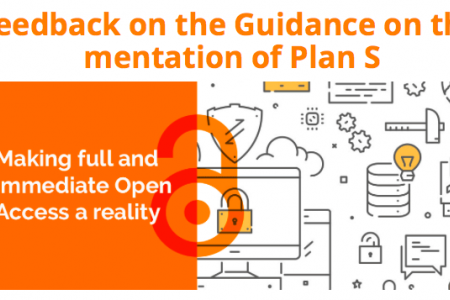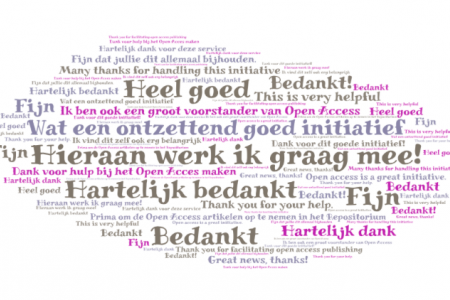PLAN S: How can you comply with the new Open Access requirements set by your funder?
A large group of research funders has joined forces in the so called cOAlition S to include strict rules on Open Access publishing as a requirement in their policies. When you receive their funding, you must comply with the requirements of PLAN S.
Author: Michelle van den Berk
What is PLAN S?
A large group of research funders has joined forces in the so called cOAlition S to include strict rules on Open Access publishing as a requirement in their policies. On 31 May the updated implementation guidance of Plan S was published after an extensive consultation procedure. In the Netherlands the Dutch Research Council (NWO), including ZonMW, joined cOAlition S and will implement Plan S from 2021 onwards.
What does it mean to Leiden researchers?
Leiden University/LUMC researchers whose research is funded by NWO and ZonMW must comply with the requirements of PLAN S. It is important that when they write a project proposal, potential costs for Open Access publication fees or Article Processing Charges (APCs) are budgeted: this cannot be done afterwards.
We expect that the European Commission (through its funding programmes Horizon 2020 and its successor Horizon Europe) and the European Research Council (ERC) will also implement Plan S.
When does it start?
NWO will incorporate the requirements of Plan S in the new calls that will be published from 1 January 2021 onwards; by then PLAN S requirements will apply to all publications resulting from those calls.
Currents projects have to comply with the requirements as set in their calls.
How to comply?
You can comply with the requirements of Plan S in three ways:
- By publishing in journals that are entirely Open Access.
If you want to do this, you must budget the costs for APCs in your project proposal - By making your article Open Access available immediately upon publication via an institutional or subject-specific repository.
You can do this with a deposit in the Leiden Repository of the Author’s Accepted Manuscript (the so called postprint, the version after peer review but without the publisher’s layout) - By publishing Open Access subscription journals that are part of transformative deals.
These are the deals with publishers that VSNU and your University Library have made; you can view a list with 9000 journals or browse the Journal Browser.

The second route offers the option to keep publishing in toll access journals which are not (yet) part of the transformative deals until 2024. However, if article processing charges (APCs) must be paid neither the library nor the funder will cover these.
At all times, the publication must be openly available immediately with a Creative Commons Attribution license (CC BY) unless an exception has been agreed by your funder. Embargo periods are no longer allowed.
How about books?
A separate plan will be made dealing with monograhs and chapters in books or edited volumes. This plan is expected in at the end of 2021. Up till then current requirements remain in place.
Background information
The main goal of cOAlition S is to accelerate the transition to Open Access publishing by implementing PLAN S.
Publishers are expected to tailor their publishing models of scholarly journals to Plan S due to the large number and impact of the cOAlition partners.
Another part of Plan S is the adjustment of the assessment of research and researchers, based on the principles of the San Francisco Declaration on Research Assessment (DORA). This means that the contents of a publication and its impact, but not the status or impact factor of the journal, should be used in assessments. VSNU, NWO, ZonMW and the Royal Netherlands Academy of Arts and Sciences (KNAW) have all stated their commitment to this principle by signing DORA.
More information
You will find the final guidance on the site of cOAlition S.
Please get in touch with the Open Access experts at the Centre for Digital Scholarship at Leiden University Libraries (UBL) or check the open access page on the website if you would like further information. We are happy to explain more about Open Access, discipline specific issues dealing with PLAN S, or to help with your project proposals via openaccess@library.leidenuniv.nl





